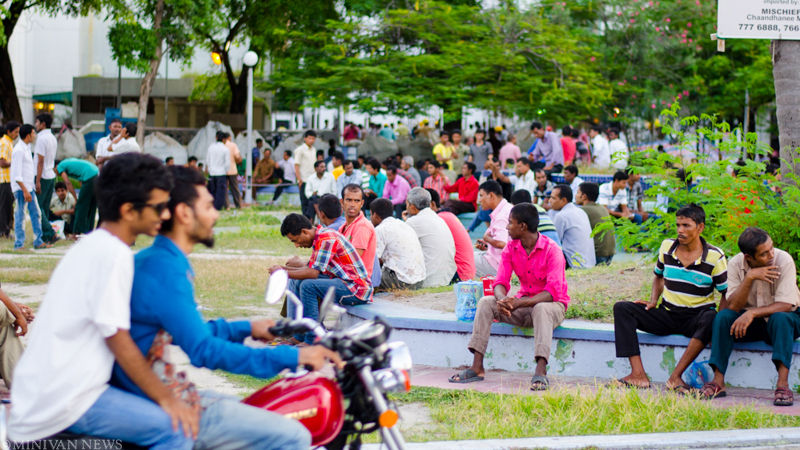Tax authority introduces new measures to avoid remittance tax evasion
Overseas money transfers made by either a dependent of a foreign worker or a Maldivian on behalf of the worker will now be subject to the controversial three percent remittance tax. A fine equal to the amount of money remitted will be imposed for tax evasion.

17 Jan 2017, 09:00
The Maldives Inland Revenue Authority has introduced new measures to prevent avoidance of a controversial remittance tax imposed on money transferred out of the Maldives by foreign workers.
According to amendments made Monday to the remittance tax regulation, transfers made by either a dependent of the foreign worker or a Maldivian on behalf of the worker will be subject to the tax.
Money transferred by an employer to the foreign bank account of a worker will not be exempt from the tax.
“Where a foreigner employed in the Maldives, or the holder of a ‘dependent visa’ that is issued to the dependent of a foreigner employed in the Maldives, or a Maldivian citizen, attempts to take out of the Maldives, cash belonging to another foreigner employed in the Maldives, it shall be considered as a measure to avoid payment of Remittance Tax […],” reads the anti-avoidance provision.
Become a member
Get full access to our archive and personalise your experience.
Already a member?
Discussion
No comments yet. Be the first to share your thoughts!
No comments yet. Be the first to join the conversation!
Join the Conversation
Sign in to share your thoughts under an alias and take part in the discussion. Independent journalism thrives on open, respectful debate — your voice matters.




